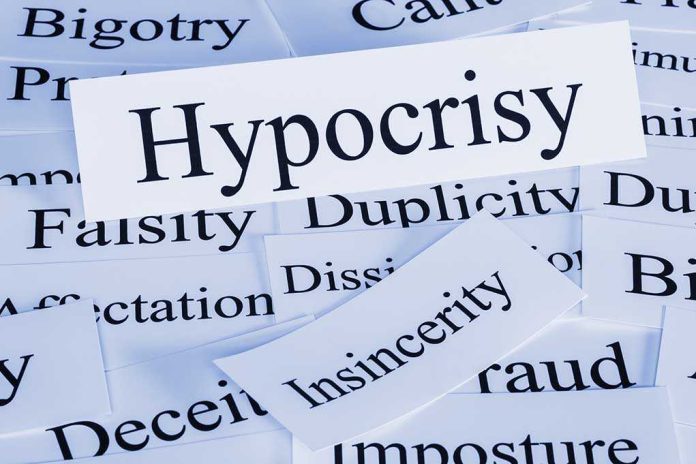Progressive leaders who once vilified a Christian symbol as extremist are now excusing a Democrat candidate’s Nazi-associated tattoo—exposing a glaring double standard that infuriates common-sense Americans.
Story Snapshot
- Democrats and progressive media condemned Pete Hegseth’s Christian tattoo but now minimize Graham Platner’s Nazi-linked tattoo.
- Platner, a Maine Senate candidate, faces scrutiny after his Totenkopf tattoo—an explicit Nazi symbol—surfaced in 2025.
- High-profile progressives, including Obama aides, are accused of hypocrisy for defending Platner while previously attacking Hegseth.
- The controversy highlights partisan media bias and erodes public trust in fair political discourse.
Double Standard in Media and Political Responses
When Pete Hegseth’s Christian Jerusalem Cross tattoo was revealed, progressive commentators and Democratic officials wasted no time labeling it a “dog whistle” for white nationalism. Hegseth, a decorated veteran and former Trump administration official, endured harsh public accusations of extremism and was barred from security detail at Biden’s 2021 inauguration. By contrast, when Graham Platner, a Maine Senate candidate, was exposed in 2025 for bearing a Nazi Totenkopf tattoo—a symbol historically tied to the SS—progressive figures rushed to diminish the scandal’s seriousness. Former Obama aides and the “Pod Save the World” podcast hosts, who had previously lambasted Hegseth, offered Platner a softball platform to justify his actions and portrayed him as a “normal guy” instead of applying the same level of scrutiny. This disparate treatment has not gone unnoticed by conservatives, who see it as further evidence of media bias and the left’s selective outrage.
Platner’s campaign attempted to preempt negative fallout by addressing the tattoo on a friendly progressive podcast, but his campaign director promptly resigned, citing unethical behavior and Platner’s clear awareness of the tattoo’s Nazi origins. The Totenkopf is not an obscure or ambiguous image—it is a hate symbol recognized by organizations like the Anti-Defamation League and universally associated with Nazi atrocities. Despite this, Platner’s defenders, including Bernie Sanders and major progressive media outlets, have insisted the controversy is a distraction from more important campaign issues. Meanwhile, Hegseth’s mainstream Christian symbol—also featured in presidential funeral programs—remains unfairly smeared by the same voices now excusing clear Nazi iconography.
Symbolism, Politics, and the Weaponization of Outrage
The stark contrast in how these two controversies have been handled speaks volumes about the politicization of personal symbolism in today’s America. Hegseth’s case highlights a disturbing trend: Christian values and symbols are increasingly maligned by left-leaning media as extremist, while actual hate symbols are downplayed when politically convenient. This erodes public trust and signals to conservative Americans that their beliefs are under attack, while true threats to American values—like Nazi iconography—are ignored if it benefits the progressive cause. Maine voters and campaign staffers have expressed outrage at the hypocrisy, and Platner’s campaign faces growing credibility issues and staff defections as a result. The broader political community is left questioning the integrity of the media and the consistency of their standards.
Progressive commentators have argued that context and intent matter, suggesting Platner’s record should outweigh his choice of tattoo. However, this rationale was never offered to Hegseth, whose faith and service were overshadowed by unfounded accusations. Political scientists and crisis management experts warn that such partisan double standards undermine the very fabric of democratic discourse. When the media and political elites decide who gets a pass and who gets vilified based on ideology rather than facts, the result is increasing cynicism, division, and a loss of faith in our institutions.
Impact on Campaigns, Public Trust, and Conservative Values
The immediate fallout from Platner’s tattoo scandal has been severe: staff resignations, negative press, and a cloud of suspicion over his Senate campaign. More importantly, this episode sets a dangerous precedent for future political contests. If partisan narratives continue to dictate who is held accountable and who is shielded, Americans can expect even less honesty and transparency from their leaders. For conservatives, this incident is a wake-up call—a reminder that defending traditional values, religious liberty, and the truth is more important than ever. The politicization of personal symbolism must be confronted head-on, or the double standard will only deepen, leaving the Constitution and core American principles further eroded in the process.












